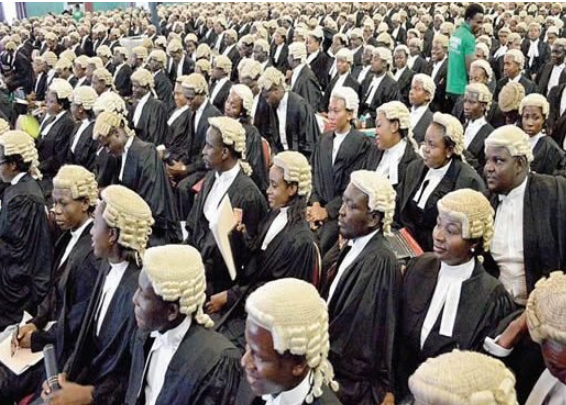
By Adebisi Onanuga
Pro bono lawyers under the aegis of Legal Advocacy Response to Drugs Initiative (LARDI) have assisted 62 indigent drug offenders to resolve difficult legal challenges, leading to their release from correctional centres across the country.
The lawyers are also handling another set of 76 drug-related cases pending in several Nigerian courts, bringing the total to 138 cases.
Speaking at a workshop in Abuja for executives and state representatives of the network, LARDI National Coordinator, Ms. Chinelo Uchendu, said the network has also undertaken drug advocacy programmes and offered legal counseling services to many drug arrestees in many correctional centres.
She said that the legal assistance programme has helped many indigent drug arrestees to access legal representation and resolve complex challenges.
Uchendu commended the UNODC and EU “for their technical support to the network which has enabled us to further enhance legal aid services to indigent drug arrestees.”
She said the development partners are supporting the lawyers’ network under the “Response to drugs and related organised crime in Nigeria,” with the aim of advising on legal aid provision and due process for drug arrestees.
“The project also supports the judiciary for the prosecution and adjudication of drug cases”, she said.
Uchendu disclosed that during the year, the development partners will support the network to hold its meetings and to embark on legal advocacy visits to 15 states and FCT to solicit support of key stakeholders towards access to justice for indigent drug offenders.
The lawyers’ network coordinator commended the United Nations Office on Drugs and Crime (UNODC) and European Union (EU) for their continued technical support which has enabled the network to offer legal assistance to indigent drug arrestees at the first National Executive Meeting held in Abuja from January 28 to 30, 2020.
Speaking earlier on: Drug use in Nigeria, Mr. William Wu, UNODC Project Officer for the “Response to drugs and related organised crimes in Nigeria” noted that one out of seven Nigerians aged between 15 and 64 years had drug use challenges.
Wu said the UNODC Project would build knowledge for justice and health in the sector, adding that this explained why it is supporting LARDI in its various proframmes and activities.
On her part, Ms. Bella Anne Ndubuisi, Cultural Affairs Specialist at the United States Embassy in Abuja, urged LARDI members to “strategically identify challenges that need to be addressed” and develop a “step-by-step plan of action to build a sustainable campaign.”
Ndubuisi who spoke on “leadership” called on the lawyers to rededicate themselves to their chosen cause, saying: “Congratulations for accepting the burden of leadership.
The project is funded by the European Union (EU) and implemented by UNODC. He added that the project supports the government to strengthen its law enforcement response, treatment services and streamlining of the criminal justice processes for drug cases by making the sentencing process more transparent.
LARDI is a network established by lawyers to provide pro bono services to indigent drug arrestees. Without this assistance, such drug offenders would languish in correctional facilities for months, if not years, as they cannot afford legal assistance which they are entitled to as Nigerians.
